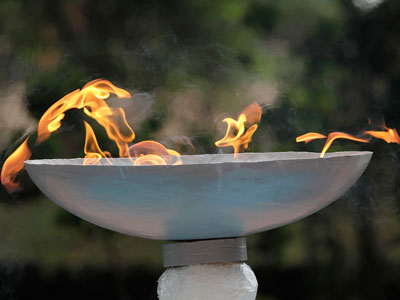Editor, FOR THE last decade living away from home, I have attended several Genocide commemoration events. I have seen indecency and inappropriate behaviour ranging from drinking and partying during the commemoration to screening Hollywood movies that do not do justice to the history of Rwanda, most importantly the Genocide’s.


Editor,
FOR THE last decade living away from home, I have attended several Genocide commemoration events. I have seen indecency and inappropriate behaviour ranging from drinking and partying during the commemoration to screening Hollywood movies that do not do justice to the history of Rwanda, most importantly the Genocide’s. But I believe the most detestable indecency is distortion of facts, forgetfulness and indifference – generally the wrong mindset.
As we mark 20th Genocide anniversary, we should remember the following points:
It should be universally known as the "Genocide against the Tutsi”, a terminology newly adopted by the UN, rather than "Rwandan genocide” as it has widely been referred to previously.
In April 1994, not all Rwandans were running around for dear life. The Tutsi were the ones running, while Hutu militias hunted and killed them.
The Hutu who were not killing were not in hiding for three months, they were not forced to drink urine, they were not subjected to seeing their parents burnt alive, etc. It’s true that some Hutu were also killed, but not because of who they were, but rather because of either their opinions or sympathies for the Tutsi. It was the Tutsi the Hutu genocidal regime and its militias wanted exterminated.
Also, on this 20th Genocide commemoration, it is important to remember that the Genocide was not triggered by some sort of African animosity hatred but rather planned by the extremist rulers who wanted to tighten their grip on power. The likes of Habyarimana and Bagosora politicised ethnicity as a tactic and manipulated the public into mass participation in the killings.
It is important to look out for those who want to politicise and exploit ethnicity again with view to take us back to a dark chapter in our history. Today, 20 years later, Genocide perpetrators and their FDLR militia stroll freely through the streets of the Congo under the watch of the UN. The past seems to have fallen into oblivion. I realise how quickly the world forgets!
I sometimes hear of people trying to blather their way about the Genocide. One day, they acknowledge X, and the other day Y, and other days both X and Y depending of course on what is in their interest at that moment. What a festival of hypocrisy!
A survivor another, Elie Wiesel, put it best: "We must take sides. Neutrality helps the oppressor, never the victim. Silence encourages the tormentor, never the tormented. Sometimes we must interfere....”
Finally and most importantly, DO commemorate if you are willing to honor the Genocide survivors. The 1994 Genocide stories are unfathomable to me; infants were thrown into ditches alive, hit on walls alive, mothers and sisters who were raped, a significant number of them infected with HIV-Aids, our parents and loved ones’ dreams and visions mutilated.
Sometimes I wonder why God ever entrusted Juvénal Habyarimana & Co. with leadership if He knew they would make such an infernal mess of it.
This April I can’t help but wonder how some Genocide survivors rose from hell to become business owners and managers, lawyers, doctors, engineers. Through them, I have come to understand the strength of the human spirit.
As President Paul Kagame previously said: "The body of Rwanda was tortured, was assaulted, the body succumbed but the spirit never did”; that is how the Genocide survivors have emerged as true heroes of post-conflict Rwanda.
For the last 19 years, much sympathy has been paid to survivors. This year, let us again empathise with them.
Arlette Umuhoza, United States


